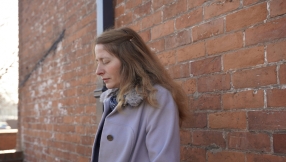'Excessive individualism' among adults threatening children's wellbeing
The “A Good Childhood” report claims that many of the problems affecting young people today have their roots in “excessive individualism” and “the belief among adults that the prime duty of the individual is to make the most of their own life, rather than contribute to the good of others”.
Such problems include a high rate of family break-ups, teenage unkindness, commercial pressures towards premature sexualisation, “unprincipled” advertising, competition in education, and acceptance of income inequality.
The report is the outcome of the Good Childhood Inquiry, the UK’s first independent national inquiry into childhood commissioned by The Children’s Society and conducted over three years by a team of eleven experts.
Its findings are based on interviews with more than 30,000 children, adults and professionals.
The report’s author, Lord Richard Layard, said, “Our evidence showed clearly how stressful life has become for many children in all social classes. We identified a common thread in these problems, which is the excessive individualism in our culture. This needs to be reversed, and children to learn that being of use to others is ultimately more satisfying than an endless struggle for status.”
The report claims that the number of children experiencing significant emotional or behavioural difficulties rose from eight per cent in 1974 to 16 per cent today and that children with step parents or a single parent are 50 per cent more likely to suffer short-term problems with academic achievement, self-esteem, depression or anxiety.
While 70 per cent of children agree that “parents getting on well is one of the most important factors in raising happy children”, only 30 per cent of parents agree with the statement.
It also warns that values such as generosity and fairness and a concept of social obligation are becoming increasingly difficult to teach in a society where “parents and children are repeatedly told they need to possess more material goods and compete successfully against each other”. The mental health of the nation’s children is also been damaged by increased exposure to TV and the internet, it claims.
The report’s authors call for a “significant change of heart in society” and for parents to help children develop spiritual qualities. They recommend that parents have a long-term commitment to each other and “aim to live harmoniously with each other”, as well as celebrate the birth of their child with a civil birth ceremony if they do not mark the occasion with a religious ceremony such as a christening.
Meanwhile, support for parents should include free parenting classes available around childbirth, and psychological support if their own relationship falters, or if their child has emotional or behavioural difficulties.
Bob Reitemeier, chief executive of The Children’s Society, said, “This landmark report for The Children’s Society says the aggressive pursuit of individual success by adults is now the greatest threat to our children, and we are determined to do something about that.
“Essentially the report brings a taboo into the open which is that we have to confront our selfish and individualistic culture.
“We need to realise that we are collectively responsible for the welfare of all children and that together we can make childhood better.’’
The report has been endorsed by the Archbishop of Canterbury, Dr Rowan Williams, who said society could do better.
“Our children deserve the best we can give them, and I hope this report will stir us to action in the wide variety of areas it touches upon,” he said.
“The report shows something of the energy, the good sense and the vision of so many of our young people.
“There is plenty of evidence to suggest that the well-being of children and young people in this country is far from being the priority it should be, and this report spells out in carefully researched detail some of the ways in which we are failing them. It is a clarion call for us as a society to do better.”













